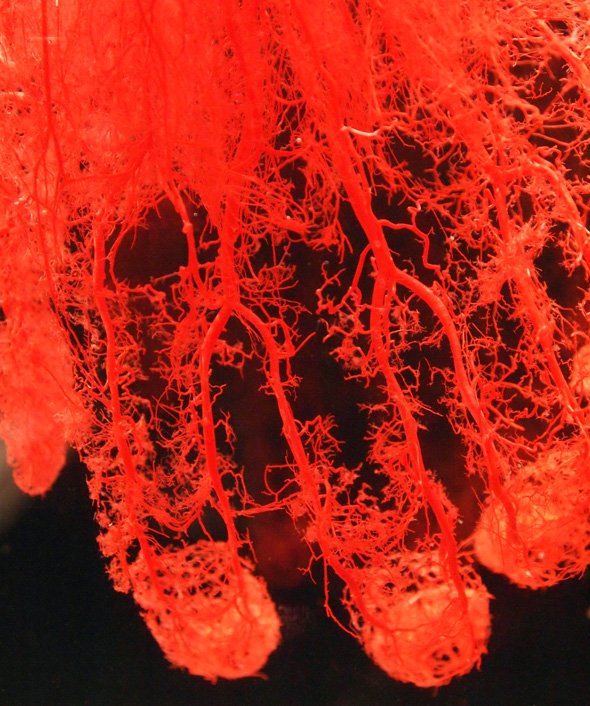For the first time in the world researchers at the Technion Institute of Technology and Rambam Medical Center in Haifa in Israel created new blood vessels using embryonic stem cells that were programmed in advance.
The team, headed by Prof. Joseph Itskovitz-Eldor, head of women and maternity department at the Rambam Medical Center and Dr. Ayelet Dar-vaknin, produced new cells named Pericytes, that have a crucial role in building blood vessels and ensuring their functioning.
The experiment simulated the treatment for damaged muscles or tissues, as a result of disruption in the blood supply. The research was conducted in the laboratory for stem cells research at the Faculty of Medicine at the Technion Institute. Over the course of the study, the researchers cultured the Pericytes in the lab in large quantities.
Related Stories:
New Device To Identify Brain Hemorrhage Without Radiation
New ‘Seek And Destroy’ Method To Fight Cancer
These cells were then injected into the leg muscles of a mouse with bad blood circulation. The injected PericyteS blood cells produced new blood vessels which rehabilitated the muscle cells damaged by lack of oxygen supply.
These new Pericytes blood cells were produced from donated embryonic stem cells, as well as genetically modified adult cells. This means that the cells can also be produced from human patient, reducing the chances of rejection by the body.
The results of this research help to understand vascular development processes and to learn how to treat common diseases with damage to the blood supply to the heart, limbs and other organs. These damages may result from complications of cardiovascular diseases and diabetes, for example.
“It is a breakthrough research with broad implications in many areas,” said Prof. Rafi Beyar Head of the Rambam hospital in Haifa, Israel. “The applications on patients are still making progress, but I see a great potential here that can be implemented in a few short years .”
…
To continue reading this article in hebrew, click here
Translation by Or Shmueli, NoCamels
Via Rambam Medical Center
Related posts

Israeli Medical Technologies That Could Change The World

Harnessing Our Own Bodies For Side Effect-Free Weight Loss

Missing Protein Could Unlock Treatment For Aggressive Lung Cancer




Facebook comments